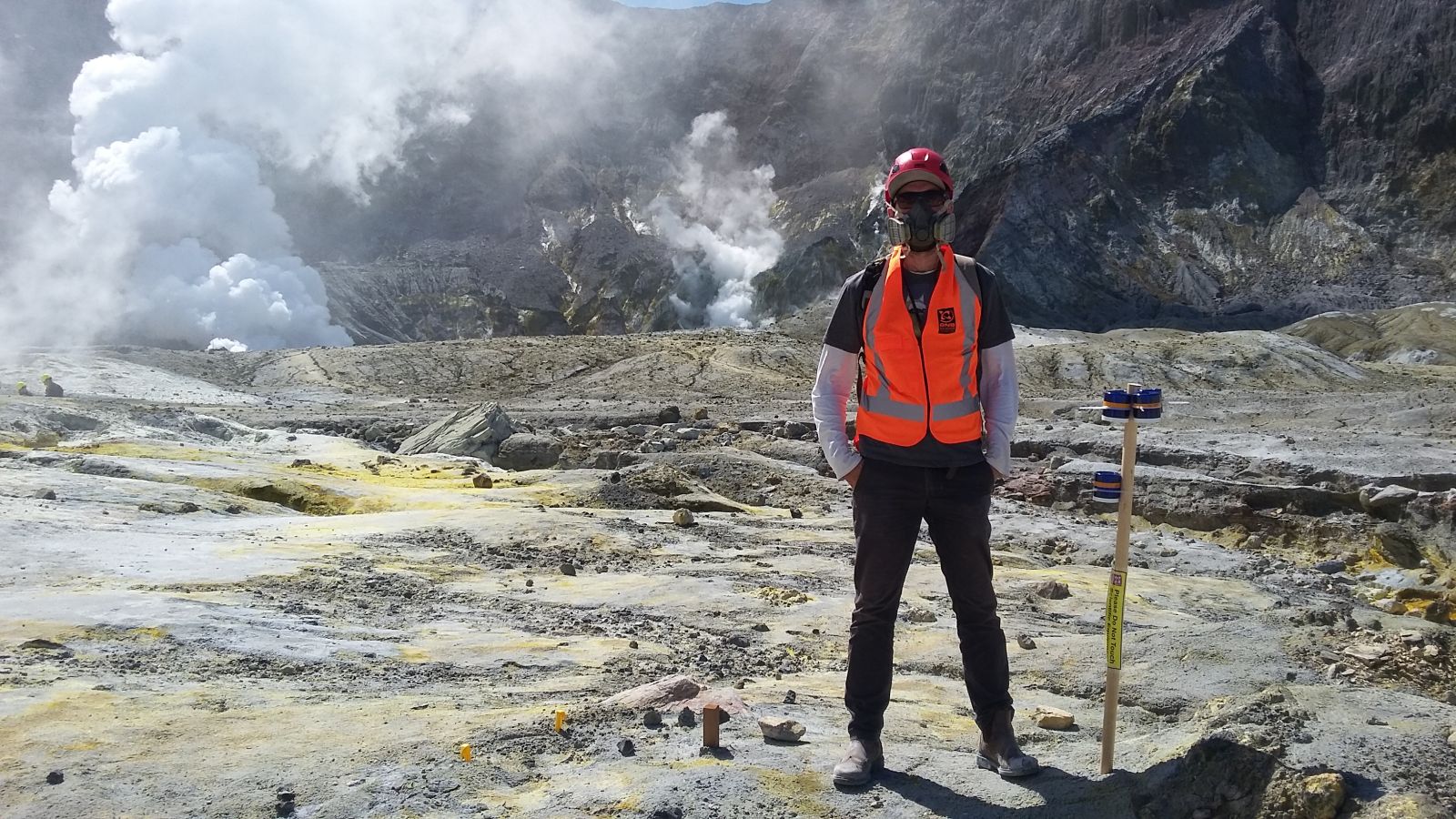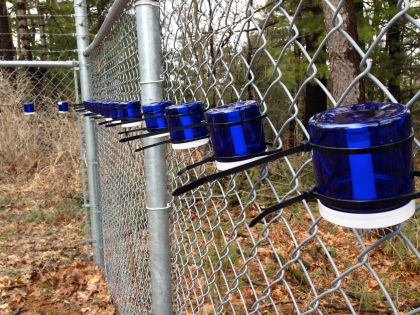
David McLagan stands on the volcanic Whakaari (White Island) in New Zealand. He was there measuring Mercury emissions from volcanic sources.
Monitoring for mercury
New Assistant Professor in the Faculty of Arts and Science, David McLagan (Department of Geology and School of Environmental Studies), has earned the Governor General's Innovation Award, which celebrates excellence and impact in innovation across all sectors in Canada.
Dr. McLagan and his co-awardees and PhD supervisors from the University of Toronto, Dr. Carl Mitchell and Dr. Frank Wania, received the award for designing a passive sampler for monitoring mercury levels and pollution in the air.

The innovative instrument titled the Mercury Passive Air Sampler (MerPAS) is unique in that it operates without the need for electricity or gas, using natural movements of air (turbulence/wind and diffusion) and a carbon material to capture mercury from air. This is especially important for spatially distributed monitoring mercury around the world and particularly in remote locations where there is less access to electricity.
“That’s really the advantage here: accessibility,” Dr. McLagan explains. “You need a lot of technical training to run and maintain an active sampler. However, MerPAS can be easily operated by almost anyone with a simple, graphics-based set of instructions. You can leave it out for weeks, months or even years and when you are ready you collect the sampler, close and seal it, then ship it back to whoever is going to analyze it.”
Another advantage is MerPAS’s affordability, which makes the system obtainable for basically anyone. One MerPAS sampler costs around $100 while active (electrical) sampling instrument costs in the range of $70,000 to $100,000.
“The issue is mercury problems are often felt most in developing countries where widespread mercury pollution can occur and active monitoring systems are not well adapted to survey mercury in these settings,” Dr. McLagan says. “Our system is small, cheap, portable, and notably they can be deployed in high numbers at the same time to assess how mercury levels change across three-dimensional space. There are a lot of holes in our understanding of mercury cycling in the environment - from releases to how it moves around the world to where it ends up and the impacts it has. MerPAS provides researchers all around the world the capacity to make key contributions to mercury science.”
When asked about potential uses for MerPAS, Dr. McLagan points to artisanal small-scale gold mining operations and the associated illegal trading of mercury.
“Small scale gold mining is often unregulated and often illegal and there is also a huge black market for mercury, it has been growing exponentially in the last 30 to 40 years. Because it’s so unregulated we can only guess how much mercury is being released. With this new technology you could potentially install a network of sensors in and around regions affected by small-scale gold mining, prevalent in South East Asia, South America and Africa, so we can start to learn how much mercury is being released into the air.”

When emitted to the air, mercury, which is highly volatile, can last for about a year and travel long distances. Eventually, it can find its way into sediments and be transformed into methylmercury, an acute neurotoxin. It's been linked with a host of brain and nervous system disorders and has been found to be particularly harmful to the cognitive development of fetuses and children.
MerPAS was developed through Dr. McLagan’s doctoral work in the Dept. of Physical and Environmental Sciences at the University of Toronto completed in 2018. The sampler was commercialized with Tekran Instruments Corporation, an environmental measurement technology leader serving industry, government, and research institutions, in 2018. This commercialization agreement has been the catalyst to the uptake of MerPAS into a series of mercury monitoring networks and use by independent researchers across the world.
“Without doubt, it is the global reach and impact that MerPAS has had that we are most proud of.”
Learn more about the award on the Governor General’s Innovation Awards webpage.

